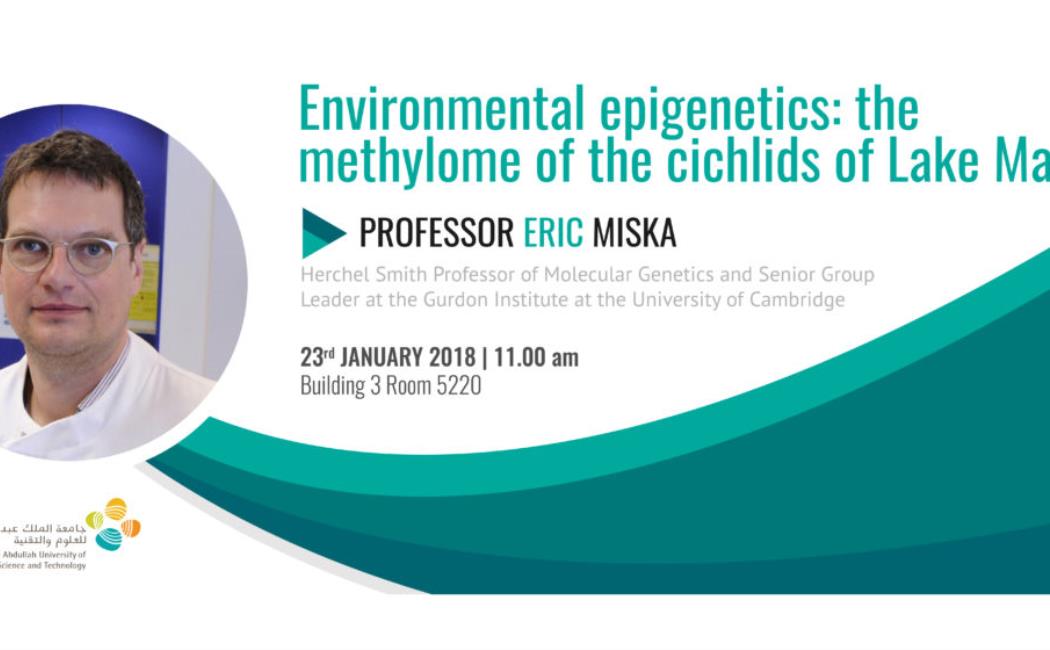
Environmental epigenetics: the methylome of the cichlids of Lake Malawi
The hundreds of species of the Lake Malawi cichlid adaptive radiation show a remarkable diversity of phenotypic and ecological adaptations, colonising many different habitats. However, recent studies highlighted that genetic diversity within the radiation is among the lowest ever observed in vertebrates. Such an extremely high phenotype/genotype diversity ratio makes Lake Malawi cichlids a promising/exciting system to investigate the role of genetics and epigenetics in the context of adaptation. Yet, the molecular mechanisms and, in particular, any epigenetic aspects underlying such phenotypic diversity and speciation success remain unknown. Here we focus on the whole-genome DNA methylation landscape (methylome), a heritable and dynamic epigenetic mark that has been reported to be responsible for rapid and transmissible changes in phenotype in plants and mammals.
Biosketch: Eric studied mathematics, physics and biology at Heidelberg, Berlin and Mainz and received a BA in Biochemistry from Trinity College, Dublin, in 1996. He received his PhD in pathology from the University of Cambridge, UK, in 2000, working with Tony Kouzarides. He was a postdoctoral fellow in the laboratory of nobel laureate (2002) Bob Horvitz at the Massachusetts Institute of Technology, Cambridge, MA, USA from 2000 to 2004. He started his own research group at the Gurdon Institute in 2005. Now Eric is the Herchel Smith Professor of Molecular Genetics and a Senior Group Leader at the Gurdon Institute at the University of Cambridge. Eric has an appointment as associated faculty at the Cambridge Systems Biology Centre and the Cancer Research UK Cambridge Research Institute. Eric was an EMBO Young Investigator and is a full member of EMBO since 2012. Eric is the 2013 recipient of the Hooke Medal awarded by the British Society of Cell Biology.